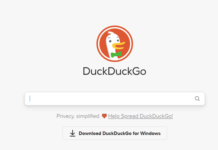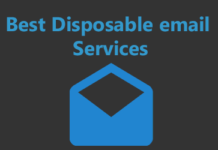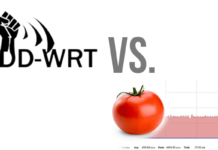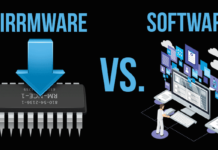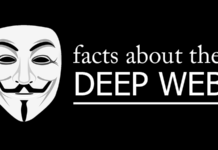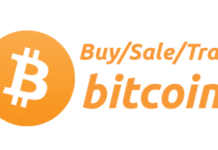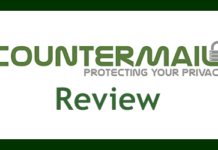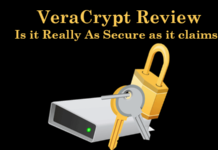Best End-to-End file storage platforms for secure data storage. This is the ultimate list you’ll ever need if you’re looking for the safest ways to store your files on the cloud.
I wouldn’t waste your time explaining what E2E is. You wouldn’t be here if you weren’t already aware of the benefits.
What’s important is, every single platform listed here is zero-knowledge. So, yes. No one’s accessing your files, not even with a court order.
The best part? Most of these offer a forever-free plan! You get to test the waters before diving in.
But hey, while E2E encryption is just the “most” important part of these services, there are other factors we look at, don’t we? There’s collaboration, link security, media management, jurisdiction and many other features.
So, here’s how I’ve picked these services for you.
How to Select an End-to-End Encrypted File Storage Service?
Before I give you the list, you need to know how I selected the options listed here, don’t you? More importantly, you need to know how to pick these zero-knowledge services on your own.
Well, here are all the factors I pay attention to:
- E2E/Zero-knowledge encryption: this of course, is the driving factor. The service must offer 100% E2E encryption and in no way should be able to view/intercept the stored data.
- Jurisdiction: It helps if the company is based out of the Five-Eye alliance and in some nation that respects user privacy. Good examples are the Netherlands, Switzerland, etc.
- Collaboration features: Because we’re storing files, I look for features like ease of sharing links, permission-based access, remote upload files, etc.
- Professional features: It’s always good if the platform allows branded links. It isn’t a mandatory feature though.
- File play/editing abilities: This one is important. If I can play my video/audio or open documents directly, it helps.
- Link protection: I prioritize tools that offer me password-protected links, the ability to set expiry dates, limit or disable downloads etc.
- Redundancy features: Tools that support versioning or recovery of lost files are also prioritized.
- Free plans and trials: I can’t ask you to blindly trust what I say for these tools. Hence, I’ve tried to include those tools that offer everything else plus either a free forever plan or at least a trial.
Let’s get you introduced to these client-side encrypted cloud storage platforms then?
| Name | Website | Free Storage | Features |
|---|---|---|---|
| pCloud | https://www.pcloud.com | Client Side Encryption, Zero-knowledge Privacy, File Sharing, Data Center located in the European Union, 2FA, Backup Automatically, Cross Platform, Easy to Use, Swiss Data Protection | |
| Sync | https://www.sync.com | Zero-knowledge Encryption, Compartmentalized Access, Share and Collaborate Securely with Anyone, Data Center located in Canada, 2FA, Backup Automatically, Cross Platform, Easy to Use | |
| icedrive | https://icedrive.net/ | Twofish Encryption, Client-Side Encryption, Share, Showcase & Collaborate, Data Center located in USA, 2FA, Backup Automatically, Cross Platform, Easy to Use | |
| Mega | https://mega.io | Zero-knowledge encryption, Customized Storage Plan to Unlimited, Fast upload and downloading, 2FA, Backup Automatically, Hungary Located |
pCloud
![]()
Website: https://www.pcloud.com
- Based out of Switzerland
- Branded links
- Direct links and file requesting
- 5 different copies of your files
- Versioning
- Upload files remotely
- Link stats
- Directly play/open audio/videos/photos and documents
- Unlimited file sizes
- Free account
- 10-day refund policy
- Annual and lifetime plans are available
Sign Up Now and Get Up to 10 GB Free Storage
pCloud is arguably the most feature-rich End-to-End encrypted storage platform on this entire list.
For starters, it out of the Five-Eye jurisdiction and is based out of Switzerland.
With pCloud, sharing is caring, but not in a creepy way. You get direct links you can share with your friends. It even allows “requesting” for files. You can even have “shared folders” that others can access alongside you.
pCloud is one of the few zero-knowledge cloud storage tools allowing branded links. You can have your own image, description, and heading for each link.
Of course everything’s encrypted with its 256-bit military encryption. There’s no maximum limit for any individual file either.
Want to access your files offline? No problem. With pCloud, you can select which files you want to have access to offline.
If you like stats, pCloud delivers. It gives you the total number of clicks, downloads, and many other stats for your links.
Because it’s in the cloud, of course, everything on your account is synced across any device you log on to.
Disaster can strike at any moment, but pCloud has you covered. Your files are stored on multiple servers, so your data is still safe and sound even if one goes down. It keeps 5 different copies of all your files!
Store lots of media on your pCloud? Why bother with a separate video player when pCloud has one built-in? Watch your videos without ever leaving the app. It even supports direct streaming without downloading your videos. Of course, audio, documents and other media can also be played.
Like any good E2E cloud storage, pCloud too supports versioning. You can go back to previous “versions” of the same file to restore a change you don’t want anymore.
With pCloud’s remote upload, you can upload files to your account from anywhere at any time.
Maybe you already use Google Drive, One Drive, Facebook, Google Photos, or something else for your data? pCloud is capable of creating a backup from any of these.
The only downer? All the data on pCloud is of course, encrypted by default. However, for E2E encryption, you’ll need to pay extra. But hey, they’ve got a 14-day free trial you can use.
The payment plans are really interesting. You can either pay annually or just once for your entire lifetime! Annual plans start at just $49.99/year. There’s also a 10-day refund policy in case you don’t like the services offered.
Sign Up Now and Get Up to 10 GB Free Storage
Sync
Website: https://www.sync.com
- Canada based
- Zero-knowledge encryption
- Block-level sync
- Compartmentalized access
- Password protected sharing
- Limit downloads for links
- File request links
- Manage bandwidth
- Free forever
- 30-day refund policy
Register Your Account and Get 5 GB free
As the name suggests, it has a “Sync” feature. I can sync any of my folders to my Sync account. Perfect for transferring files across devices or just accessing them from multiple locations.
Maybe you don’t wish to sync everything you have? You can choose exactly which files and folders you want to sync and which ones you want to leave untouched.
You can even specify and limit bandwidth consumption by Sync!
Of Course, You can share files with anyone using direct links. And yes, the files are encrypted during transit as well as at rest.
But what if you only want certain people to have access to your files? That’s where Folder Permissions come in. You can choose who can access your folders and what they can do with the files inside. It’s like having a personal file bouncer to make sure only the right people get in.
Do you love security? Sync does too. You can set a password for the link and an expiration date. You grant specific people access for a specific time.
Its link download limit is another feature I’m in love with. You can set a maximum number of downloads for each link, so you have complete control over who can access your files and how many times they can do it.
Another rare but very useful feature is its upload link. This feature allows others to upload files to your Sync.com account without giving them access to your entire folder.
You can even set a password for the upload link. Moreover, you also get to specify the target folder where files should be uploaded when this upload link is used.
Of course, It supports direct file previews as well as editing files on the fly. Previous versions of the files are retained as well.
The best part? Nothing I’ve said so far needs to be taken at face value. You can start using Sync.com 100% free, forever, up to 5 GB. Even its paid plans are some of the industry’s cheapest, starting at $8.00/month.
Even on the paid plans, there’s a generous 30-day refund policy!
Register Your Account and Get 5 GB free
IceDrive
Website: https://www.icedrive.com
- Virtual Drive
- E2E encrypted
- S based
- Link sharing
- Password protected links
- Expiry dates for links
- Free forever account
- Versioning
- 14-day refund policy
Create an Account Now, Get 10GB Free Storage!
I’ll be honest, IceDrive isn’t at the same level as pCloud or Sync. However, as far as End-to-End encrypted cloud storage goes, it totally deserves a peek.
I do love its Virtual Drive feature though. It creates a local drive on my system. I can use the virtual drive to drag and drop files, edit them, and save changes directly to the cloud.
You can share files and folders with others through IceDrive’s secure link-sharing feature, which allows you to control the level of access granted to each user. You can also collaborate with others on files and folders with real-time editing and commenting features.
Yes, the remote “upload link” feature exists as well. Simply share a link and others can upload files to your IceDrive account.
While it doesn’t have the “limited downloads” feature for links that I’m so in love with, it does let me set “expiry dates” for shared links. Older versions of the same files can be accessed as well.
Of course, files can be shared using simple links. I can also set passwords for the links if I want to.
Why did I say it isn’t at the same level as its competitors? For starters, it’s U.S based. Secondly, at times you may need to download your files and then re-upload them to move them between folders on your IceDrive account.
Again, there’s a forever free account you can use. You get 10 GB free storage, no E2E encryption is provided on the free account though.
Paid accounts start as low as $1.67/month. There’s even a 14-day refund policy.
Create an Account Now, Get 10GB Free Storage!
MEGA
![]() Website: https://mega.io/
Website: https://mega.io/
- E2E encryption
- New Zealand headquarters
- Password and expiry dates for links
- File request links
- Free forever account
MEGA is on this list for multiple reasons. For starters, it’s one of the only companies that offers E2E encryption not just on paid accounts but also if you’re a free user.
It offers all the primary features you expect with any zero-knowledge cloud storage platform, starting with zero-knowledge encryption.
It does allow you to set passwords for your links. This obviously means you can share files using direct links. Oh, expiry dates can be set as well. You can also set specific permission for each individual you share the file/folder with.
Moreover, you can also create file request links. Anyone who does not have a Mega account can upload files to your Mega account.
Sure, I’d have loved a “limit” feature on the downloads, but you can’t have it all now, eh?
As for jurisdiction, its headquarters are based in New Zealand, a country that I’m mostly okay with. It also has servers in half a dozen other nations, which is another sigh of relief for me.
Let’s address the Elephant in the room? Yes, Mega has had a controversial past, which may be controlled mainly by the Chinese government. or at least a few individuals. Either way, it’s E2E encrypted so your data stays safe no matter who controls it.
A free plan gives you 20 GB of storage (and E2E encryption). Paid plans start at EUR 49.99/year (can be billed monthly).
Sign Up and Claim 20 GB Free Storage
Tresorit
Website: https://tresorit.com/
- Based out of Budapest
- Free E2E accounts forever
- Password + expiry dates for links
- Branded links
- Disable downloads/prints for links
- Remote upload links
- Permission-based access
- Recover deleted files
- Versioning
- Remote wipe data
I suppose no list discussing E2E cloud storage can be complete without mentioning Tresorit.
So, for starters, End-to-End encryption is offered for free, forever. The paid plan is completely optional. Moreover, most other options on this list have somewhat more access to your (meta)data than Tresorit does in certain scenarios.
It has all the features you want from one such E2E encrypted file storage service. This includes encrypted links for sharing, password-protected links as well as expiry dates.
Oh it even offers a more advanced form of branding, complete with your logo and colors to the shared links!
You can even disable download/print options for the shared links. It can be made so that the data can be viewed only. If you want specific people to view it, you can also require e-mails for file viewing.
Oh, and the remote upload links? Available! Anyone, even you, can upload to your Tresorit account without even having a Tresorit account (you of course, must have one).
Tresorit of course, has folders. You can choose to grant specific permissions to specific users.
Deleted files can be recovered as well. It does store previous versions of files and allows restores to those versions as well.
It has fantastic device options. First, camera rolls can be set to auto-uploads. You can also use it to scan and upload documents while they remain entirely encrypted and never stored on your device.
Lost your device? You can wipe it remotely!
So, all in all, I’d say it actually offers more features than pCloud. The only downer? There’s a maximum file cap for each plan and it’s slightly more expensive.
Talking of that, you can either go for its forever free plan, or the paid plans start at $11.99/month.
ProtonDrive
Website: http://beta.protonmail.com/
The biggest reason why ProtonDrive is on this list is because it’s from the ProtonMail team.
ProtonMail is the most established anonymous email service in existence today. They also launched ProtonVPN a few years back which too became equally popular. Just like ProtonMail, the drive too is subject only to Swiss laws.
The ProtonDrive is without doubt End-to-End encrypted, so, yes, only you and the person you share your files with will have access. As far as link-sharing goes, ProtonDrive allows sharing encrypted links with non-Proton users.
So, anyone can access the files without being forced to have a Proton account. ProtonDrive is still in its beta phase and was launched just a few months back.
In order to gain access to the beta version , you only need a standard Protonmail account. No separate signing up is required. Also, the early-access remains forever.
Meaning, when ProtonDrive is officially released, you’ll retain your access. It doesn’t offer many features now, but new features are being implemented almost every single day.
Point is, if you need cloud storage you can absolutely trust, ProtonDrive is one of the most secure options you can find.
WoelKli
Website: https://woelkli.com/en
- Swiss laws
- Advanced features
- Secure
- No limits on download links
WoelKli is a Switzerland based End to End encrypted cloud storage service. Automated sync between your Woelkli account and other devices is made possible. All the common features generally found with other similar end to end encrypted cloud storage services are available.
These include sharing of files using links, using passwords on files and links, custom timeout (expiry time) etc. Doesn’t allow limiting the download links though .
Previewing as well as editing files on the platform is possible. Playing media files such as Videos, audio and photos on the platform is facilitated using its in-built players. 2-Factor authentication too is available. Does feature a “deleted files” folder which lets users recover accidently deleted files.
Alike most other end to end encrypted cloud storage services, it too doesn’t support block-level sync. Notes, Calendar, To-Do list and other such productivity apps have been included in the suit as well.
Is available cross-platform for Mobiles (Android / iOs), as well as Linux. Does offer a free plan with 1 GB storage. However there are 4 paid plans-
- Level CB- 10 GB storage- Single user: CHF 90.00
- Level C2 – 50 GB storage – Single user: CHF 180
- Level C3- 200 GB storage- Single user: CHF 390
- Level C4 – 500 GB – Single user: CHF 690
Swiss citizen can pay using Invoices at Post offices, banks or via e-Banking. Foreign users can use PayPal or bank transfers. Doesn’t support Bitcoin.
OpenDrive
Website: https://www.opendrive.com
Pros:
- Extremely flexible and customizable plans.
- Cross-platform.
- Strong encryption.
Cons:
- No 2-FA
- Media can’t be played.
OpenDrive is a client-side cloud storage service with servers in the U.S .
But if you can ignore Uncle Sam for a bit, it’s pretty feature-rich. It provides for selectively syncing the files individually. File linking and sharing is possible.
Sharing entire folders with custom permissions on them too is allowed. Download limits on links, expiry time, or password-protecting links isn’t possible. Deleted files can be restored.
Uses AES-256 bit encryption to encrypt the files. 2-Factor authentication isn’t available. Is available on Mobile devices and multiple operating systems.
I however wasn’t able to edit my files on the platform, neither could I play media directly. No block-level backup available either. Offers three types of plans, Personal, Business and Enterprise.
There’s a free personal plan with 5GB of storage. Paid plans start at USD $9.95/month. Business and Enterprise plans have custom pricing depending on the number of users, storage space, bandwidth etc.
However cheapest business plan starts at USD $7.00/month. Payment modes include only Credit/Debit cards and Paypal.
IDrive
Website: https://www.idrive.com
Pros:
- Great for backing up multiple devices.
- Secure
- True achieving (No automated deletions).
Cons:
- Not many “sharing” features.
- Only 30 versions available.
- Not a very easy user interface.
IDrive is another end to end encrypted cloud storage platform which doesn’t store a client’s private key on its servers.
It’s ensured that the data is stored at “multiple” iDrive datacenters however the locations of the same hasn’t been made public. It provides for “unlimited” device backups, so you can use it on as many devices as you want.
The space however is capped according to your plans. They added 2-FA in November, 2018. It provides mobile apps which let you not only access your files, but also backup your Android as well as iOS devices. Folder sharing and syncing is allowed.
It also has an in-built media player which lets us play photos, videos and other media on iDrive. Retention of accidently deleted files is possible. It also features “continuous” backing up, so that whenever there’s something new on a file it recognizes the change and backs it up.
It primarily is a “cloud storage” platform and hence doesn’t support expiry time, link-passwords or download limits.
Let me mention that even though they offer live-chat, it’s terrible. The support rep I was talking to suddenly stopped replying and the chat-bar completely disappeared mid-conversation.
It has three pricing plans, there’s a free plan offering 5GB free storage. Their IDrive personal plan starts at USD $52.12/year. The Business plan is priced at USD $74.62/year.
Spider Oak
Website: https://spideroak.com/one/
Pros:
- Cross-platform.
- Continuous , block-level backups.
Cons:
- No 2-FA
Talking of End to End encrypted cloud storage services, Spider Oak One totally deserves a mention.
Its servers are located in the U.S. It can be integrated with One Backup’s share room feature which lets users share files with others securely. The links have a self-destruct timer of 3 days.
Beware though, if and when you use its Shareroom, the files stored in Share room aren’t end-to-end encrypted anymore.
It’s available cross-platform across Windows, Mac, Linux etc. It also features “Point in Time” recovery, which is like an older version of the file which you can access and restore in case the newer version is hacked or altered in any way.
There’s no limit on how many files can be retained. What’s unique is you can also use it from a command-line interface.
It lacks 2-factor authentication. It offers selective backups, meaning users manually select which files to backup to their accounts.
Its cheapest plan starts at USD $ 69.00/year and goes upto USD $320.00/year. It accepts only Credit and debit cards for payments. No other payment methods such as Bitcoin, PayPal or anything else is accepted.
Secure Safe
Website: https://www.securesafe.com
Pros:
- Switzerland based.
- Cheap
- Impressive Storage + sharing options.
Cons:
- No link download limits.
Switzerland-based, Zero-knowledge encryption offering cloud storage platform is what secure safe is.
They backup every single file three times across multiple servers to prevent data-loss in extreme situations.
They even offer “Data inheritance” which provides family members and partners access to confidential information such as PIN numbers in case the original account owner isn’t available.
Seamless syncing between various devices is possible. Also features a “Secure Send” option allowing users to send encrypted files upto 2GB to anyone in the world, without the receiver having a Secure Safe account.
Does allow syncing folders. Shared links can be password protected and be set with an expiry date.
Even though it doesn’t allow for edits in-app, does offer file previews. Doesn’t offer block-level backups.
All file versions are stored and traceable later. Desktop apps can be encrypted directly on the desktop. Does offer 2-FA. Offers a 100Mb free personal plan, the Pro plan costs USD $1.50/month.
Silver and Gold plans cost USD $4.00 and USD $12.00 /month respectively.
Business plan include a Single project plan which starts at USD $4.00/month/user, while the company plans start at USD $9.50/month. Doesn’t accept Cryptocurrencies.
Degoo
Website: https://degoo.com
Pros:
- Automated backups.
- Cheap.
- Secure.
Cons:
- Maximum 10TB storage available.
- Lacks sharing features.
Degoo is an end to end encrypted cloud storage based off Switzerland. It’s not extremely feature-rich but may still suit the needs of some.
For starters, Degoo markets itself as a cloud “backup” provider rather than a storage provider. (Refer our F.A.Q section to learn how they differ.) It’s available for Android and iOS devices in addition to being available for computers.
It also emphasizes heavily on backing up “photos” however obviously you can also store all other types of files on the platform. It lacks majorly when it comes to accessibility, the web-interface does exist but doesn’t let you “access/download” the files without the desktop app. Security is impressive.
There’s End to End encrypted cloud storage encryption, and the data is broken down into multiple chunks and is spread across many different datacenters.
It doesn’t have its own 2-FA, but it can be enabled via Google accounts. The datacenters are hardened against physical disasters and attacks. It doesn’t feature block-level transfers.
There’s a free plan offering 100 GB storage, a Pro plan for USD $3.00/month, and an ultimate plan which goes for USD $9.99/month. Payment can be made using only fiat modes and Bitcoin isn’t supported.
Now that we’re done with the list, let me help you understand some basics based on which most of this article was scribbled down.
Oracle
Website: https://cloud.oracle.com/storage
Pros:
- Extremely Professional.
- Password Protected Links.
- Segment-uploading.
Cons:
- Expensive.
- U.S-Based.
- BTC not accepted.
I doubt Oracle needs an introduction, does it? I had heard of the company even before I turned 10.
Although it differs from the other companies on this list as Oracle isn’t essentially made for individuals, rather it’s better suited for groups, corporations and companies.
What Oracle primarily offers is extremely secure physical and virtual protection, as well as the reputation of this 40 year old, $39.83 Billion yearly revenue company! The only downer for me with the company is that it’s based in America.
Although the company does offer End to End encryption which is why it’s on this list.
It also provides for multiple storage nodes, making sure the data is duplicated and stored in them and is accessible even in cases of hardware failure, data corruption and so on. As it’s an advanced, enterprise-grade solution it offers features such as Data-integrity checks using MD5 checksums and HTTP response codes.
Segment-uploading too is available, which means for larger files (>5GB) users can segment the file into multiple parts, upload each smaller file individually, which is then joined together so it functions, and can be used as a single file.
Users can allow role-based access to users on their team(s) which defines their level of control on the data. It also facilitates password protected and Encrypted download links for easy and secure sharing.
As you may have guessed, it’s a tad bit more expensive. The plans too aren’t easily understandable unless you’re familiar with terms like Block Volumes, Object Storage (Requests / Storage) and Storage gateway.
Offers a “Pay as you Go” plan which doesn’t require any pre-payment, and also a monthly plan which requires a minimum USD $1000 commitment.
All Sync
Website: https://allsync.com/
Pros
- Extremely Feature Rich.
- Secure
- Zero-Knowledge.
Cons
- Bans Accounts on Bandwidth Abuse.
AllSync is one of the Best End to End Encrypted Cloud Storage Services.
It’s made for the masses, meaning its features and UI are extremely simple and easy to use.
For starters, it’s a Zero-Knowledge Cloud storage service. So the company at no times has access to any of your files.
AllSync also has a fully functional Web version, and hence no download is required to start using the platform. Provides users control over the content, you can set a password, expiry time as well as the ability to edit the content.
Downloading files in batches is another possibility. Despite being a Cloud storage, it’s not void of media playing capabilities. So you can play music, videos and photos while on Allsync.
It’s pretty liberal as well and allows creation of unlimited user accounts. No limit on the bandwidth is applied either so it’s unlimited downloads and uploads (the total storage space is still limited).
Moreover, alike Google Sheets/Google Docs etc. it has a collaboration suite and allows creation of docs and sheets, and offers live-collaborations. Leaving comments and feedback is possible as well.
As for security, there’s 2-Factor authentication. It even can be enabled to auto-sync all camera photos and videos. Versioning of files is possible, those different versions can be downloaded as well.
They allow personal subdomains, as well as custom domains. Even accepts Bitcoin as a mode of payment among fiat modes. The available payment plans offer storage spaces with 50GB, 500GB, 1TB, 2TB and 2TB Storage. The pricing starts from EUR 0.08/month and goes upto EUR 14.99/month.
Duplicity
Website: http://duplicity.nongnu.org/
Pros:
- E2E encrypted
- Incremental backups
- Versioning
Cons:
- Setup is a bit complicated.
The prime reason why Duplicity is listed here? It’s open-source and 100% free.
That says a lot about trust, authenticity and legitimacy, doesn’t it? How so?
Well, being open-source, all its claims, security and protocols can be verified by any individual on the planet, right?
Obviously it’s End-to-End encrypted so nothing is intercepted mid-way without encryption.
Its “incremental backup” feature is something else we like. You do not have to re-upload an entire file simply because you changed a line, or a single file within a folder. Only the “change” is re-uploaded.
This not only saves you time but also bandwidth. It also supports versioning which allows you to recover older versions, or just correct a mistake.
The only problem is with its setup. It does require basic knowledge of computers and isn’t exactly “very easy” to setup. Also do note that it may at times eat up quite a bit of temp space on your system.
However, it can manually be directed to use a different directory for the temp space which offers you the choice of location.
Internxt
Website: https://internxt.com/
- E2E encrypted
- Cross device/OS supported
- Forever free plan
- Lifetime plan exists.
- Needs few more “sharing” features.
Internxt is a zero-knowledge cloud storage service that has no access to whatever you store there.
The company is very vocal about its respect for privacy. The company itself is based out of EU.
While that’s not the location we root for, its privacy policy and algorithms do guard against problems.
Being E2E encrypted, the data is encrypted on your side and is never accessible by Internxt.
The best part? It’s absolutely free. The only limitation on this plan is that you can store maximum 2GB of files. Even the paid plans start as low as €0.89/month (this is billed €10.68/year). This plan offers 20 GB storage, the next plan offers 200 GB for EUR 3.49/month.
Even lifetime plans exist, starting at €299.00. I get it, maybe you don’t like the interface or you need special features? They offer a 30-day moneyback guarantee if you don’t like the product. (You can always try the free version first).
What is End to End Encrypted Encryption?
In the simplest possible words, End to End encryption is the kind of encryption which encrypts the data between two parties. So only the Sender/Creator and the intended receiver of the data can decrypt and access it.
No other party, not even the service providers, companies, govt. agencies or anyone else can access the content.
A slightly more complex explanation would be that public keys of both parties (the sender and the receiver) are used to encrypt the data, while private keys are used to decrypt it.
In most cases, the data is encrypted on the client (sender’s) device just before the data is sent using his/her keys.
These keys are not owned by, or known to the service providers and hence they can’t decrypt the data.
So if you also were curious about “Who can access the files stored on these End to End encrypted cloud storage platforms”, the answer is- Only you (and anyone else you willingly share the file with).
I don’t know How to Encrypt or Decrypt Files, How can I Use these Services?
You don’t have to. These encryption and decryptions happen in the back-end, automatically.
All you have to do as a user is, upload your files. Or maybe share them with others if you want.
No coding, encrypting or anything of that nature is required on the user’s part to use any of these end to end encrypted cloud storage services. (Although occasionally you may need to set a password, which is pretty common and easy).
What is Cloud Storage?
I doubt anyone here is oblivious to what the cloud is, but let me answer it just to be safe.
In the simplest possible words, the cloud means “The Internet”. Cloud storage means data stored on the Internet. Or in other words, data stored in datacenters/servers which can be accessed over the Internet.
Companies own datacenters which are like Hard-disks for the Internet.
Users upload their data to the companies, which store the data on these servers.
This data can then be accessed at a later time by the user over the internet. Another major benefit that these Best End to End Encrypted Cloud Storage Services provide apart from the encryption is “accessibility” and “ease of sharing”.
In other words, the files stored on our local Hard-Disk drives are only accessible on those drives and those systems.
While the files stored on the cloud can be accessed from any system, anywhere on the world. As long as you have the right password. This pretty much makes your data portable without having to carry anything.
As for “ease of sharing“, you can’t share your local HDDs with your friends and colleagues unless they have physical access. And even then, privacy remains an issue if you simply share the entire HDD.
With Cloud storage services however, you can share almost anything simply by sharing a link. Moreover, selective-sharing lets you control exactly which files they gain access to, everything else still remains unavailable to them.
Additionally, advanced options such as setting a password, expiry-time for the shared link, monitoring stats related to views/downloads of the content is possible.
All in all, Cloud storage isn’t just about “storing” files. It takes digital data to a whole another level, making it more connected, secure and accessible.
What is GDPR?
I’ve mentioned “GDPR Compliance” multiple times in this article on End to End encrypted cloud storage services, and that may be confusing to some.
GDPR stands for “General Data Protection Regulation” and it is a law (for the lack of a simpler word), which forces companies and organizations to protect the privacy and identity of users.
It’s primarily for companies based in, or operating from the European Union, which is true for most of the companies on this list.
The GDPR protects your personal information (name, address, Ids etc), biometric data, web data (cookies, location etc), political opinions and basically a plethora of other personal information.
A simpler answer is- Companies which comply to GDPR regulations are a much safer and better choices than those which don’t.
Is it Legal to use End to End Encrypted Cloud Storage Services?
Yes, completely. End to End encrypted Cloud storage is just additional space for your data. Although the “Data” stored there may be illegal.
For e.g. storing pirated content. If you use Encrypted cloud storage only for storing legal contents, it’s 100% legal.
Note that because these services are End-to-End encrypted, even illegal content if and when stored is only accessible and known to you. In either case, the act of using encrypted cloud storage services is 100% legal.
What is Block-level Backup?
This is another term mentioned frequently throughout this article. Block level backup is the technology which lets a cloud platform backup only “new” changes instead of re-uploading the entire content.
For e.g. if you have a 1GB folder/file and you add 50Mb extra data to it, only the extra 50Mb data is uploaded to your cloud backup and not the entire 1GB file.
In other words, only the modified parts of the files are backed up. This saved not only time, but also bandwidth and system resources.
What is the Difference between Cloud Storage and Cloud Backup Services?
The truth lies in the two words- “Storage” and “Backup. A cloud storage provider is like an additional hard-disk, on the cloud.
It’s where you can store new (or old) data from your offline, local hard disks. The goal of cloud backup companies on the other hand is “creating copies” of your already existing data.
Obviously you can add new data and use it as extra storage space in most cases. Cloud storage services generally tend to offer a lot more sharing control (password protected links, expiry time, custom folder protection etc). as compared to cloud backup services.
Fiat Vs. Bitcoin Payment Modes
I’ve emphasized greatly on every company’s support (or the lack of) for Bitcoin throughout this article.
That’s simply because fiat payments are completely transparent and traceable. Once you purchase an account using fiat methods, every file you store online can be linked back to your real-life identity using your payment details.
But if you make payments using Bitcoin, there’s much lesser chance of companies/agencies being able to trace the origin of those files back to you. (Obviously other precautions such as a VPN would be required to make that happen).
Can these companies hand over your files to law-enforcement agencies?
“Can” they? Yes. Will they? No. For two primary reasons, first it’ll ruin their business reputation forever.
And second, because all of these companies support “End to End encryption”, there’s no point in doing so as those agencies won’t be able to access the actual data in the first place.
Why are Datacenter/Server Locations Important?
Another aspect I’ve mentioned repeatedly is the server location of these companies.
That’s simply because the country any server is based off will have a lot of control over the data and the company.
Hence a company based in Switzerland is a much better choice to store your data, as compared to the intrusive, privacy-violating U.S or other similar countries.
Is Zero-Knowledge Encryption Really the Best Solution?
While we take Zero-Knowledge encryption to be the perfect solution in most cases, is it really so? Are there absolutely no flaws in the encryption and its distribution? Seems like there is.
Note that Zero-Knowledge encryption means the cloud service provider doesn’t have any knowledge of a user’s encryption keys.
But even in this scenario, the files are encrypted using the cloud provider’s encryption software and algorithms. So it all rests on how secure and trustworthy that specific service providers’ encryption is.
In a perfect world, because the files are encrypted prior to being uploaded no third-party would be able to access them, but it isn’t a perfect world, is it?
There’s no real way to know that the NSA and other similar organizations do not have backdoors into the cloud provider’s systems.
Additionally, Zero-Knowledge means the cloud provider has absolutely no way to access your encryption keys, this prevents them from being able to recover your files and help with the decryption if the user loses his/her keys under any circumstances.
So the “idea” by itself is pretty secure and impressive, it all comes down to the extent to which any company is able to implement the claimed and said algorithms and tech
Final Words:
So, which is the best of these zero-knowledge cloud storage platforms? I’d say Mega and pCloud are, without a doubt, the best choices. This is primarily based on their features, jurisdiction, and pricing plans.
Of course, all the other options listed here also offer the same level of security. But then, the ultimate choice rests with you. What’s your priority? Is it simply cloud storage? Or maybe it’s collaboration? Do you need team access?
I’ve discussed these tools from all of these perspectives to get you the best possible idea.
